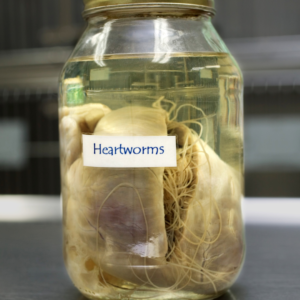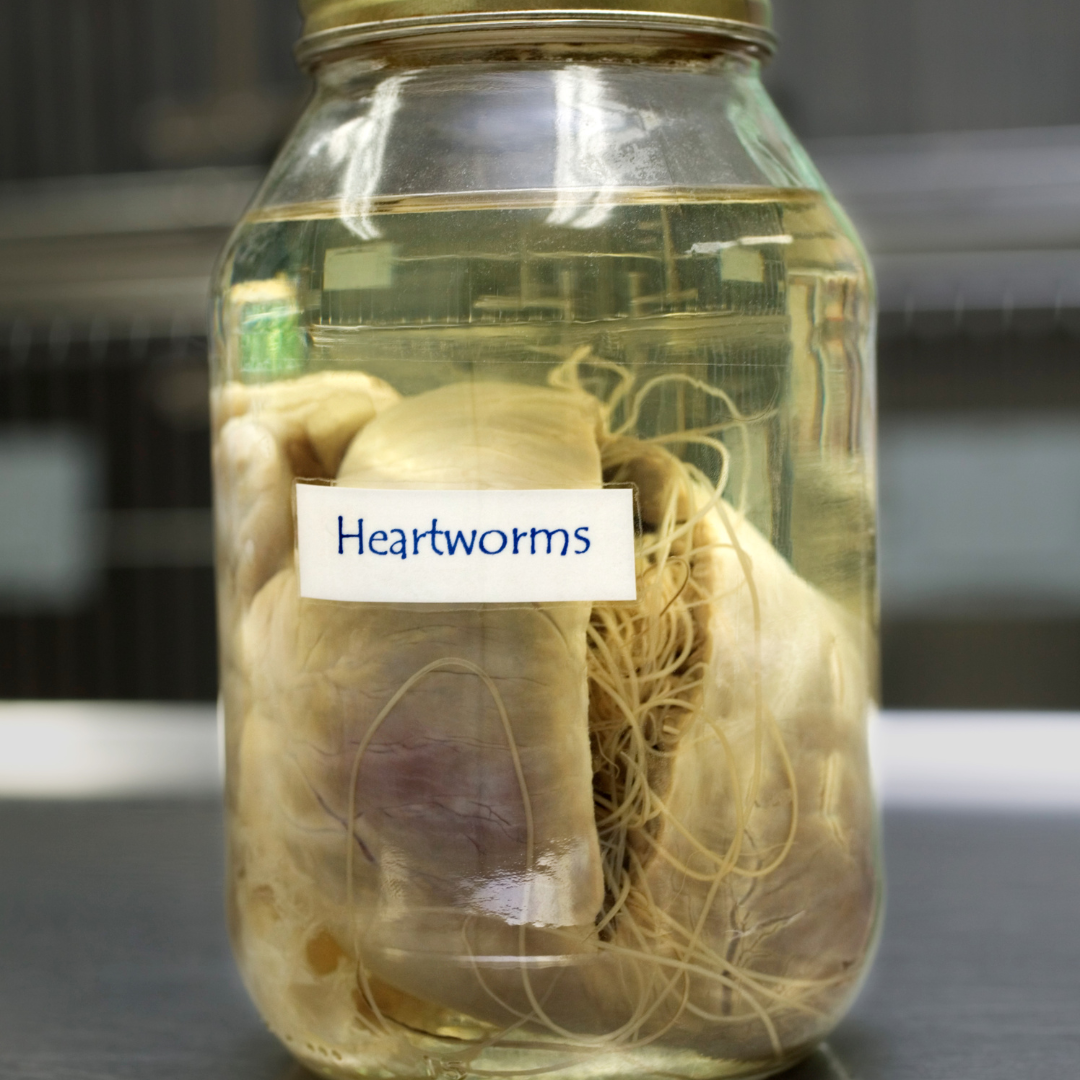Taking A Look At Heartworms In Pets, What They Are, How Pets Get It, And How To Prevent It In Honor Of National Heartworm Awareness Month
The month of April is observed as National Heartworm Awareness Month. In honor of this awareness-based holiday, it’s vitally important to shed light on one of the most significant threats to our furry companions: heartworm disease. As responsible pet owners, it’s our duty to prioritize our pets’ health and well-being.
By understanding the dangers of heartworm disease and taking proactive measures to prevent it, we can ensure our furry companions lead long, healthy lives free from this potentially deadly parasite.
While it might not be a topic that garners as much attention as other pet-related concerns, understanding heartworm is important for every pet owner. This article will take an in-depth look into what heartworm is, its impact on our pets, and how we can prevent it.

What Is Heartworm?
The American Heartworm Society defines heartworm disease as a potentially fatal condition caused by parasitic worms known as Dirofilaria immitis. These worms primarily affect dogs, but they can also infect cats and other mammals.
Heartworms reside in the heart, lungs, and other associated blood vessels of infected animals. Over time, they can cause severe damage to these vital organs resulting in lung disease, heart failure, and ultimately death.
How Is Heartworm Transmitted?
The F.D.A. (Food and Drug Administration) reports that the transmission of heartworm typically occurs through the bite of an infected mosquito. When a mosquito bites an infected animal, it picks up microfilariae (immature heartworms) circulating in the bloodstream. Over the next 10 to 14 days, these microfilariae develop into infective larvae within the mosquito.
Subsequently, when the infected mosquito bites another animal, it injects these larvae into the new host’s bloodstream, where they mature into adult heartworms over several months.
Symptoms Of Heartworm Disease
Heartworm infection often progresses silently, with symptoms becoming apparent only in the later stages of the disease. Common symptoms of heartworm disease in dogs include persistent cough, fatigue, reduced appetite, weight loss, difficulty breathing, enlarged abdomen (due to fluid accumulation) and fainting or collapsing (in severe cases).
Cats infected with heartworms may exhibit similar symptoms, along with vomiting, gagging, and respiratory distress. However, cats are more resistant hosts for heartworms, and the disease is often more difficult to diagnose in felines.

Heartworm Prevention
Preventing heartworm disease is far easier and more cost-effective than treating it. Fortunately, several preventive measures are available to safeguard your pets’ health.
First, monthly preventive medications. Administering monthly heartworm preventives prescribed by veterinarians is the most effective way to protect pets from heartworm infection. These medications come in various forms, including chewables, tablets, and topical treatments. For more information about heartworm prevention medications, click here.
Second, regular veterinary check-ups. Routine check-ups with your veterinarian are essential for early detection of heartworm infection. Annual heartworm tests are recommended for all dogs, even those receiving preventive medication. Catching heartworms early can save your pet from a lot of pain and organ damage.
Third, mosquito control. Minimizing your pet’s exposure to mosquitoes can help reduce the risk of heartworm transmission. Use mosquito repellents recommended for pets and eliminate standing water where mosquitoes breed. For more information about pet-safe mosquito repellents, click here.
Heartworm Treatment
In cases where pets are already infected with heartworms, treatment can be complex and costly. Treatment typically involves a series of injections to kill adult worms, along with medications to manage symptoms and complications. However, treatment can be risky, especially in advanced cases, underscoring the importance of prevention.
For more information regarding heartworm treatment, click here.

Hire A Professional Pet Sitter To Care For Your Pets!
Pets need regular stimulation to stay happy and mentally healthy. If you don’t have the time to regularly stimulate your pets, then consider hiring a professional pet sitter! Here at Stay At Home Pet Services, we offer quality pet sitting services at competitive prices. We have over 10 years of experience, our sitters are certified in pet first aid & CPR, and we love all pets as if they were our own.
We are located in Cincinnati, OH and service the following areas of East Walnut Hills, Hyde Park, Mt Lookout, Oakley, Norwood, Kennedy Heights, Pleasant Ridge, Tusculum, East End, Mariemont, Fairfax, Madisonville, Mt Washington, Dillonvale, Deer Park, Silverton, Kenwood, Madeira, Indian Hill, and Anderson Township. Click here to become a client today or give us a call at 513-706-7702.
Be sure to check us out on Facebook and Instagram too! We post everyday, so make sure you follow us so you don’t miss out on any adorable pet pictures.

